Filter by
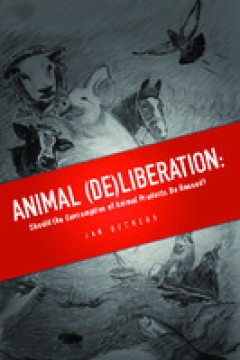
Animal (de)liberation : should the consumption of animal products be banned?
In this book, Jan Deckers addresses the most crucial question that people must deliberate in relation to how we should treat other animals: whether we should eat animal products. Many people object to the consumption of animal products from the conviction that it inflicts pain, suffering, and death upon animals. This book argues that a convincing ethical theory cannot be based on these importan…
- Edition
- -
- ISBN/ISSN
- 9781909188853
- Collation
- viii ; 234p. : ill.
- Series Title
- -
- Call Number
- 179.3 JAN a
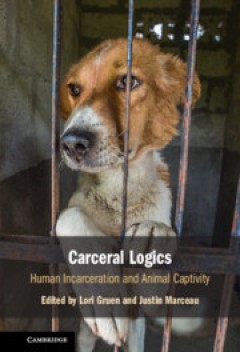
Carceral Logics : Human Incarceration and Animal Captivity
Carceral logics permeate our thinking about humans and nonhumans. We imagine that greater punishment will reduce crime and make society safer. We hope that more convictions and policing for animal crimes will keep animals safe and elevate their social status. The dominant approach to human-animal relations is governed by an unjust imbalance of power that subordinates or ignores the interest non…
- Edition
- -
- ISBN/ISSN
- 9781108919210
- Collation
- xiii, 450 p ; ill
- Series Title
- -
- Call Number
- 344.049 CAR L
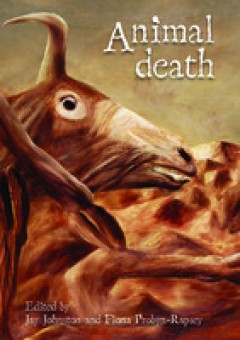
Animal death
Animal death is a complex, uncomfortable, depressing, motivating and sensitive topic. For those scholars participating in Human-Animal Studies, it is – accompanied by the concept of 'life' – the ground upon which their studies commence, whether those studies are historical, archaeological, social, philosophical, or cultural. It is a tough subject to face, but as this volume demonstrates, on…
- Edition
- -
- ISBN/ISSN
- 9781743325247
- Collation
- xv. :ill. ;351 p.
- Series Title
- -
- Call Number
- 179.3. JAY a
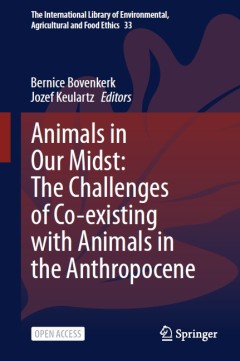
Animals in our midst : the challenges of co-existing with animals in the anth…
This Open Access book brings together authoritative voices in animal and environmental ethics, who address the many different facets of changing human-animal relationships in the Anthropocene. As we are living in complex times, the issue of how to establish meaningful relationships with other animals under Anthropocene conditions needs to be approached from a multitude of angles. This book offe…
- Edition
- -
- ISBN/ISSN
- 9783030635237
- Collation
- xiii, 579p. : ill.
- Series Title
- -
- Call Number
- 179.3 ANI a
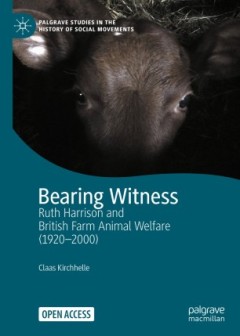
Bearing Witness : ruth harrison and british farm animal welfare (1920 - 2000)
This open access book is the biography of one of Britain’s foremost animal welfare campaigners and of the world of activism, science, and politics she inhabited. In 1964, Ruth Harrison’s bestseller Animal Machines triggered a gear change in modern animal protection by popularising the term ‘factory farming’ alongside a new way of thinking about animal welfare. Here, historian Claas Kirc…
- Edition
- -
- ISBN/ISSN
- 9783030627928
- Collation
- xxvi. 271p. : ill.
- Series Title
- -
- Call Number
- 179.3092
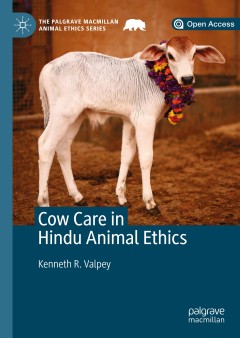
Cow care in Hindu animal ethics
This open access book provides both a broad perspective and a focused examination of cow care as a subject of widespread ethical concern in India, and increasingly in other parts of the world. In the face of what has persisted as a highly charged political issue over cow protection in India, intellectual space must be made to bring the wealth of Indian traditional ethical discourse to bear on t…
- Edition
- -
- ISBN/ISSN
- 9783030284084
- Collation
- xxx, 269p. : ill.
- Series Title
- -
- Call Number
- 179.3 VAL c
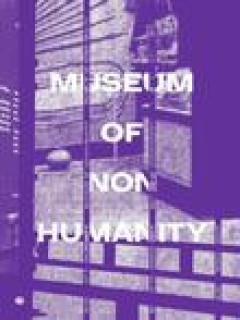
Museum of nonhumanity
Museum of Nonhumanity is the catalogue for a full-size touring museum that presents the history of the distinction between humans and animals, and the way that this artificial boundary has been used to oppress human and nonhuman beings over long historical periods. Throughout history, declaring a group to be nonhuman or subhuman has been an effective tool for justifying slavery, oppression, med…
- Edition
- 1st edition.
- ISBN/ISSN
- 9781950192120
- Collation
- 281p.:
- Series Title
- -
- Call Number
- B105.A55 GUS m
 Computer Science, Information & General Works
Computer Science, Information & General Works  Philosophy & Psychology
Philosophy & Psychology  Religion
Religion  Social Sciences
Social Sciences  Language
Language  Pure Science
Pure Science  Applied Sciences
Applied Sciences  Art & Recreation
Art & Recreation  Literature
Literature  History & Geography
History & Geography